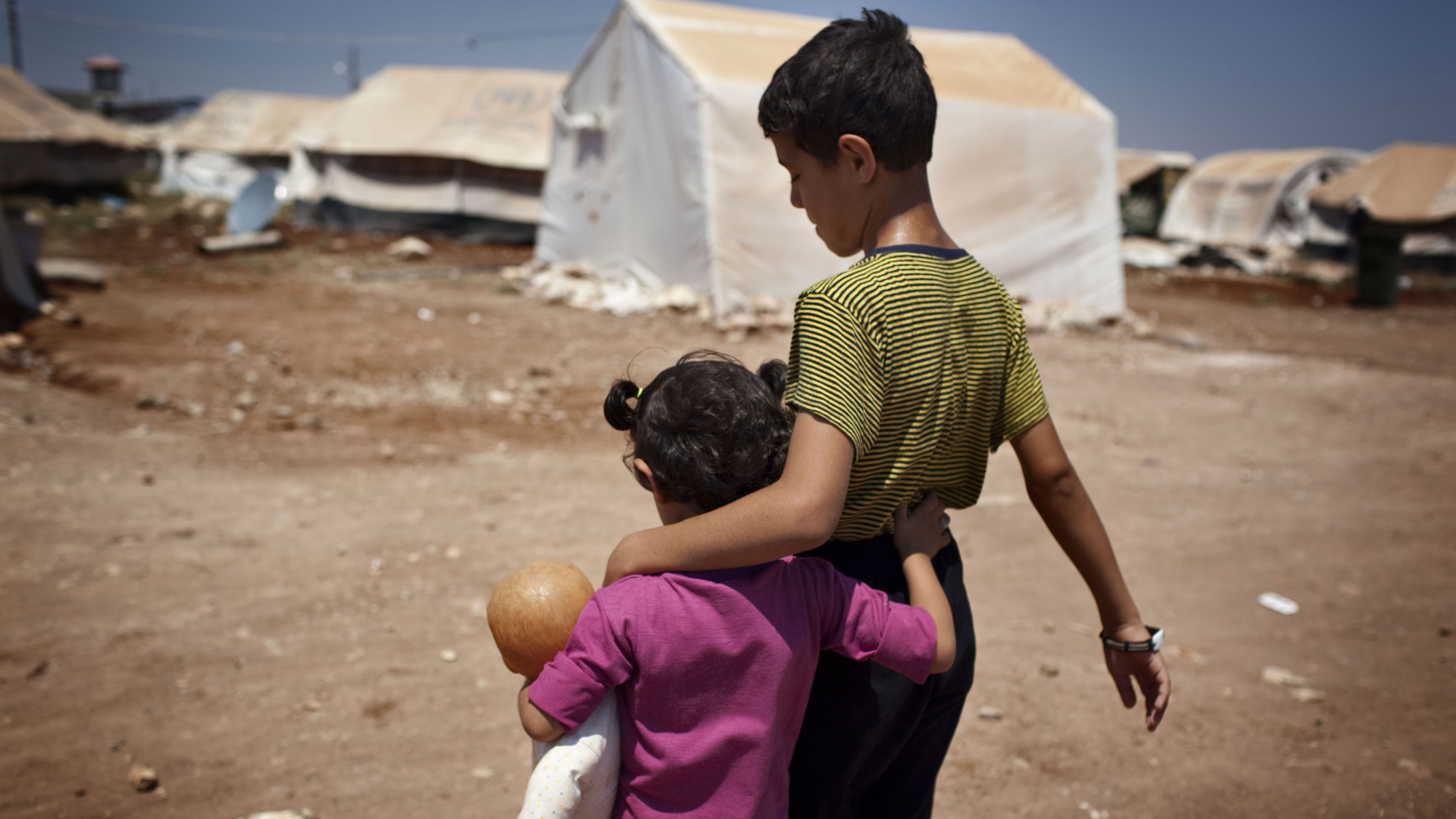Syrian refugee crisis: over three million forced to flee
The world is failing to respond to 'the greatest humanitarian emergency of our era', says the UN

A free daily email with the biggest news stories of the day – and the best features from TheWeek.com
You are now subscribed
Your newsletter sign-up was successful
An unprecedented three million people have fled the war in Syria, in what the UN is calling "the greatest humanitarian emergency of our era".
A further 6.5 million are internally displaced, which means over half of all Syrians have been forced out of their homes due to the conflict, according to the latest figures from the UN Refugee Agency.
"They're exhausted, sick, scared," the World Food Programme's Dina Elkassaby told the BBC World Service. She said the latest UN statistics are "a sobering reminder that this conflict is nowhere near its end".
The Week
Escape your echo chamber. Get the facts behind the news, plus analysis from multiple perspectives.

Sign up for The Week's Free Newsletters
From our morning news briefing to a weekly Good News Newsletter, get the best of The Week delivered directly to your inbox.
From our morning news briefing to a weekly Good News Newsletter, get the best of The Week delivered directly to your inbox.
More than 190,000 people have been killed during the country's bloody civil war that started in 2011.
The vast majority, over one million people, have fled to neighbouring Lebanon. The rest have settled in Turkey, Jordan, Iraq and North Africa, placing enormous pressure on the infrastructure and resources of those countries.
The UN said its response to the crisis had now become the biggest refugee operation in the organisation's history, but said there had not been enough of a global response. International donors have contributed $4.1bn to help address the humanitarian crisis, but the organisation says a further $2bn is needed before the end of the year.
"The response to the Syrian crisis has been generous," said the UN High Commissioner for Refugees Antonio Guterres. "But the bitter truth is that it falls far short of what's needed. The world is failing to meet the needs of refugees and the countries hosting them."
A free daily email with the biggest news stories of the day – and the best features from TheWeek.com
-
 Local elections 2026: where are they and who is expected to win?
Local elections 2026: where are they and who is expected to win?The Explainer Labour is braced for heavy losses and U-turn on postponing some council elections hasn’t helped the party’s prospects
-
 6 of the world’s most accessible destinations
6 of the world’s most accessible destinationsThe Week Recommends Experience all of Berlin, Singapore and Sydney
-
 How the FCC’s ‘equal time’ rule works
How the FCC’s ‘equal time’ rule worksIn the Spotlight The law is at the heart of the Colbert-CBS conflict
-
 Epstein files topple law CEO, roil UK government
Epstein files topple law CEO, roil UK governmentSpeed Read Peter Mandelson, Britain’s former ambassador to the US, is caught up in the scandal
-
 Iran and US prepare to meet after skirmishes
Iran and US prepare to meet after skirmishesSpeed Read The incident comes amid heightened tensions in the Middle East
-
 Israel retrieves final hostage’s body from Gaza
Israel retrieves final hostage’s body from GazaSpeed Read The 24-year-old police officer was killed during the initial Hamas attack
-
 China’s Xi targets top general in growing purge
China’s Xi targets top general in growing purgeSpeed Read Zhang Youxia is being investigated over ‘grave violations’ of the law
-
 Panama and Canada are negotiating over a crucial copper mine
Panama and Canada are negotiating over a crucial copper mineIn the Spotlight Panama is set to make a final decision on the mine this summer
-
 Why Greenland’s natural resources are nearly impossible to mine
Why Greenland’s natural resources are nearly impossible to mineThe Explainer The country’s natural landscape makes the task extremely difficult
-
 Iran cuts internet as protests escalate
Iran cuts internet as protests escalateSpeed Reada Government buildings across the country have been set on fire
-
 US nabs ‘shadow’ tanker claimed by Russia
US nabs ‘shadow’ tanker claimed by RussiaSpeed Read The ship was one of two vessels seized by the US military